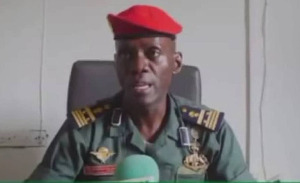Dr. Peter Sakwe Masumbe, Senior Lecturer in Public Policy and International Relations, University of Buea, explains the possible impact of the recent granting of clemency by the DRC government to political opponents.
What informs the recent decision by the Democratic Republic of Congo government to grant clemency to over 50 political opponents?
President Joseph Kabila of the Democratic Republic of Congo has been embroiled in internecine conflicts - mostly in the eastern part of the country - for several years since he took over from his father in January 2001. Thus, granting amnesty to dissidents is a credible political instrument to calm tempers and bring belligerents to dialogue with the government.
Certainly, incarcerating opponents of a regime, especially on political grounds, does not allow for the emergence or blossoming of democracy, especially for a country whose name is underpinned with the cajoling word 'democratic.'
How far can the measure go in restoring peace and stability in the restive east and in fostering national reconciliation and confidence-building among the political class?
Certainly, when someone is released from incarceration, his family, well-wishers and friends are gladdened. This creates an atmosphere of congeniality. In fact, it is a measure of high political maturity for a leader to release political opponents from jail.
And as a reciprocity measure, those political opponents just granted amnesty must see reason for dialogue as an opportunity through which they should express their grievances. Even their colleagues, who might still be in detention for political reasons, must be consulted to bring forth a unified stance to be presented in a dialogue which the government of President Kabila must be open to.
However, granting amnesty to opponents is not a major achievement by any political leader. Therefore, such action must not be applauded on its own merit, because in a real democracy - which the DRC professes to practise according to its name - people with dissenting voices must not necessarily be thrown into jail.
But if some of those granted amnesty were war mongers, it is appropriate to even keep them longer in jail because democracy is never achieved through the barrel of the gun, but by dialogue and mediation. So the Head of State's action can be positive and applauded if it is accompanied or based on a true sense of acceptance of political differences.
How willing and ready are the major stakeholders in ensuring that the process is successfully implemented?
The onus of proof is on those who claim to be stakeholders in the political fortunes and vicissitudes of the DRC to ensure that peace and stability reign in the country that has been torn by internecine warfare for several years.
The willingness and readiness of the so-called major stakeholders must not be seen to suffer any incapacity, given the government's granting of amnesty to opponents. The release of these opponents must spur the stakeholders to reason in their dire need and obligation to ensure that the process of peace-building takes irreversible roots in the country.
Actualités of Wednesday, 30 April 2014
Source: Cameroon Tribune












